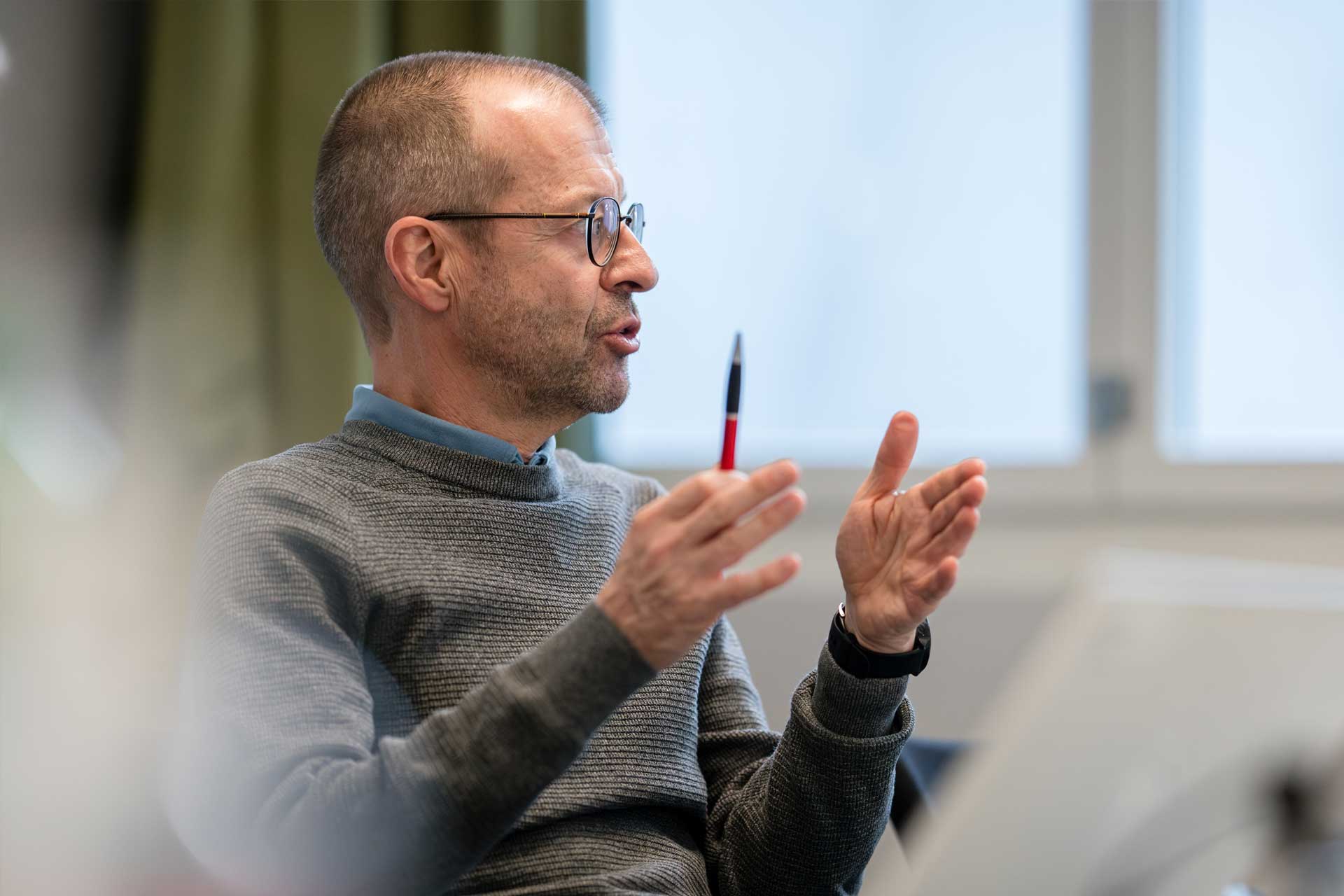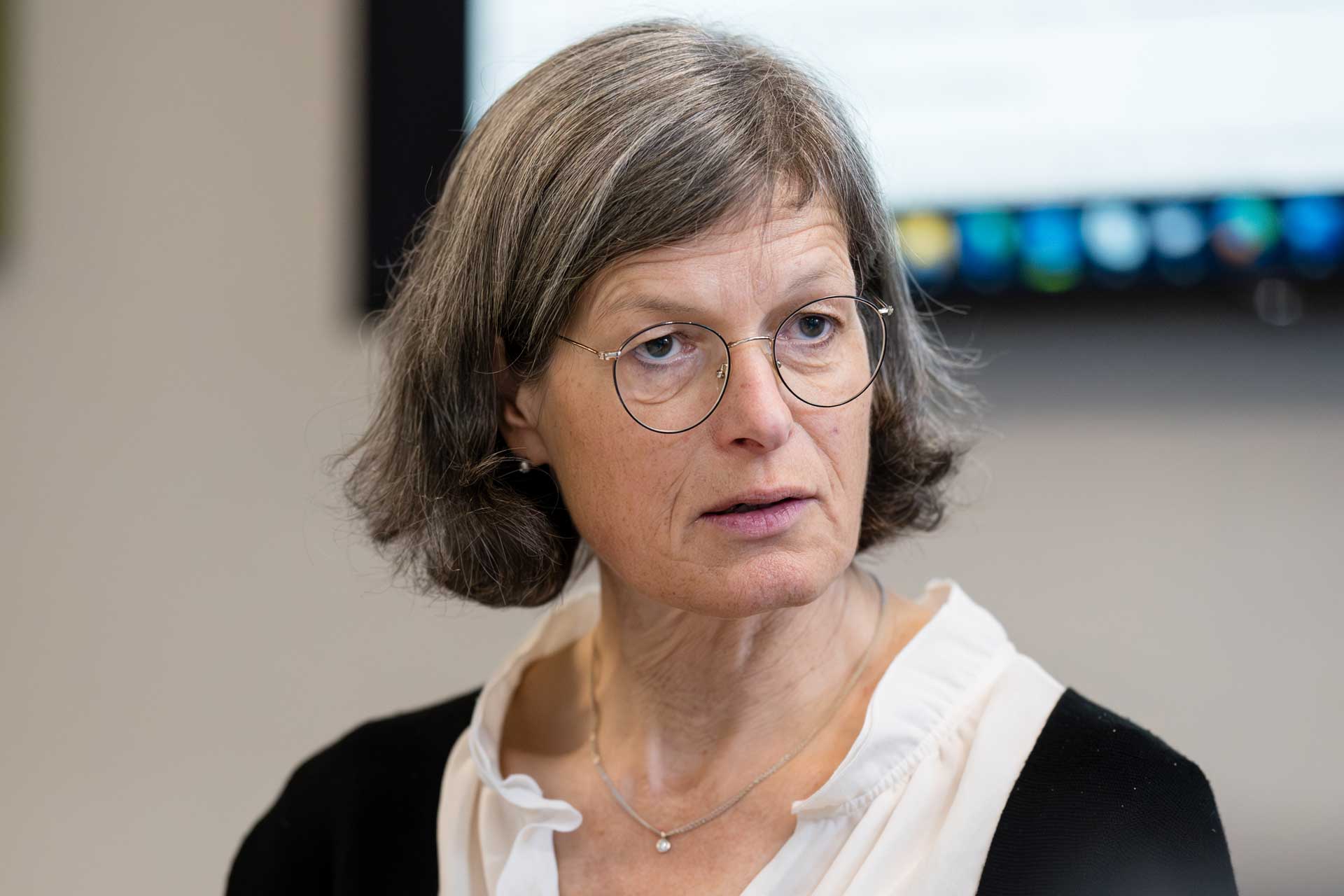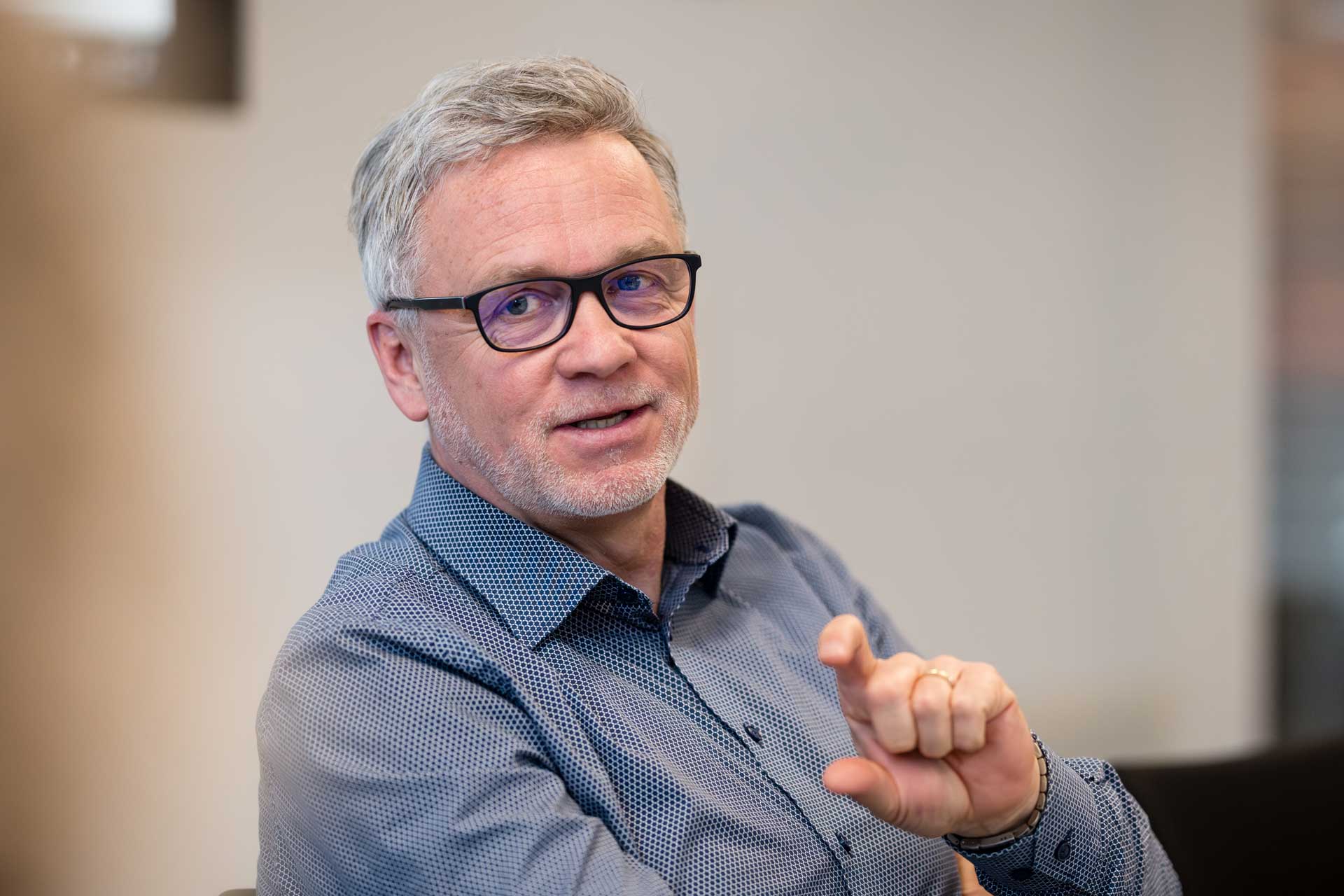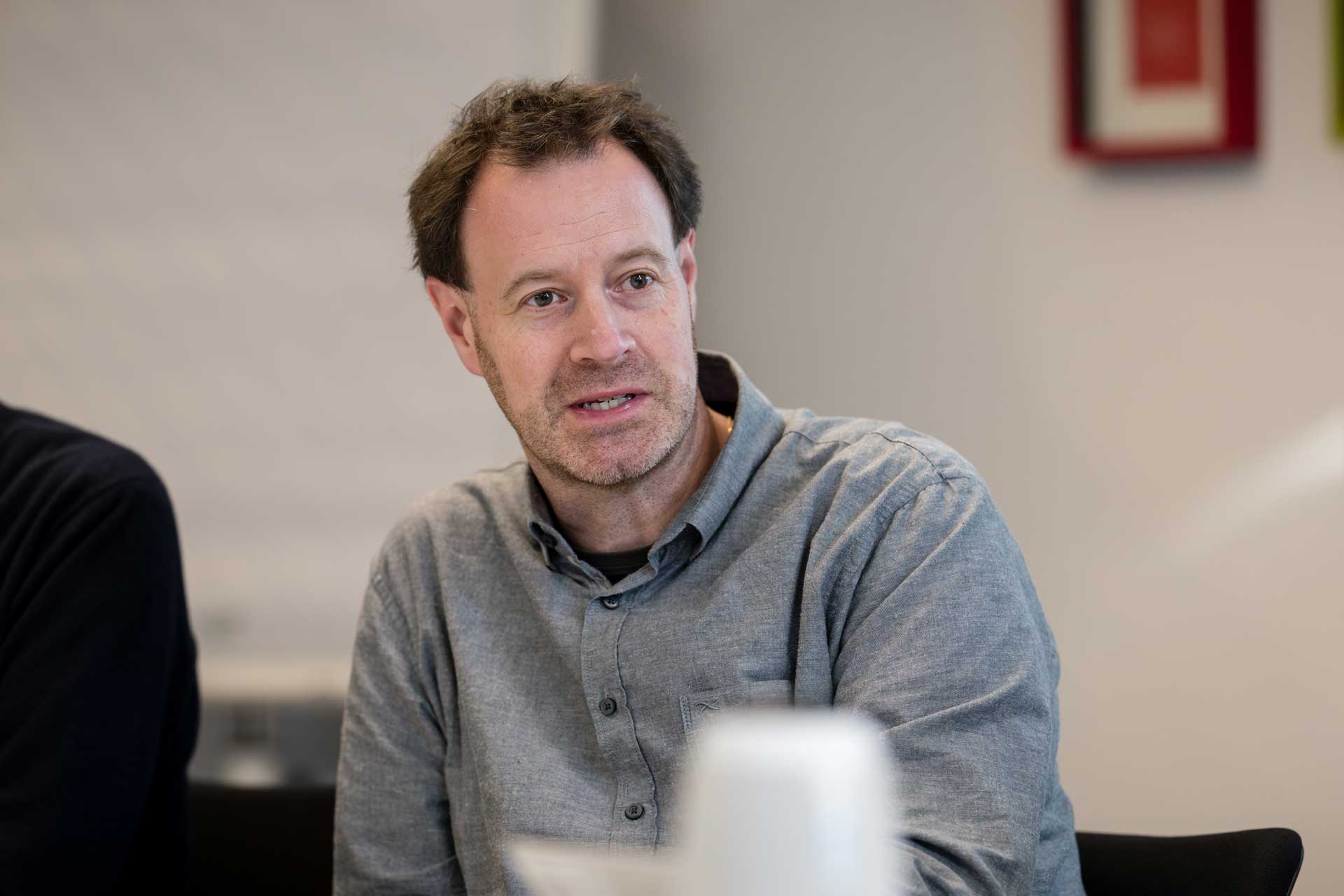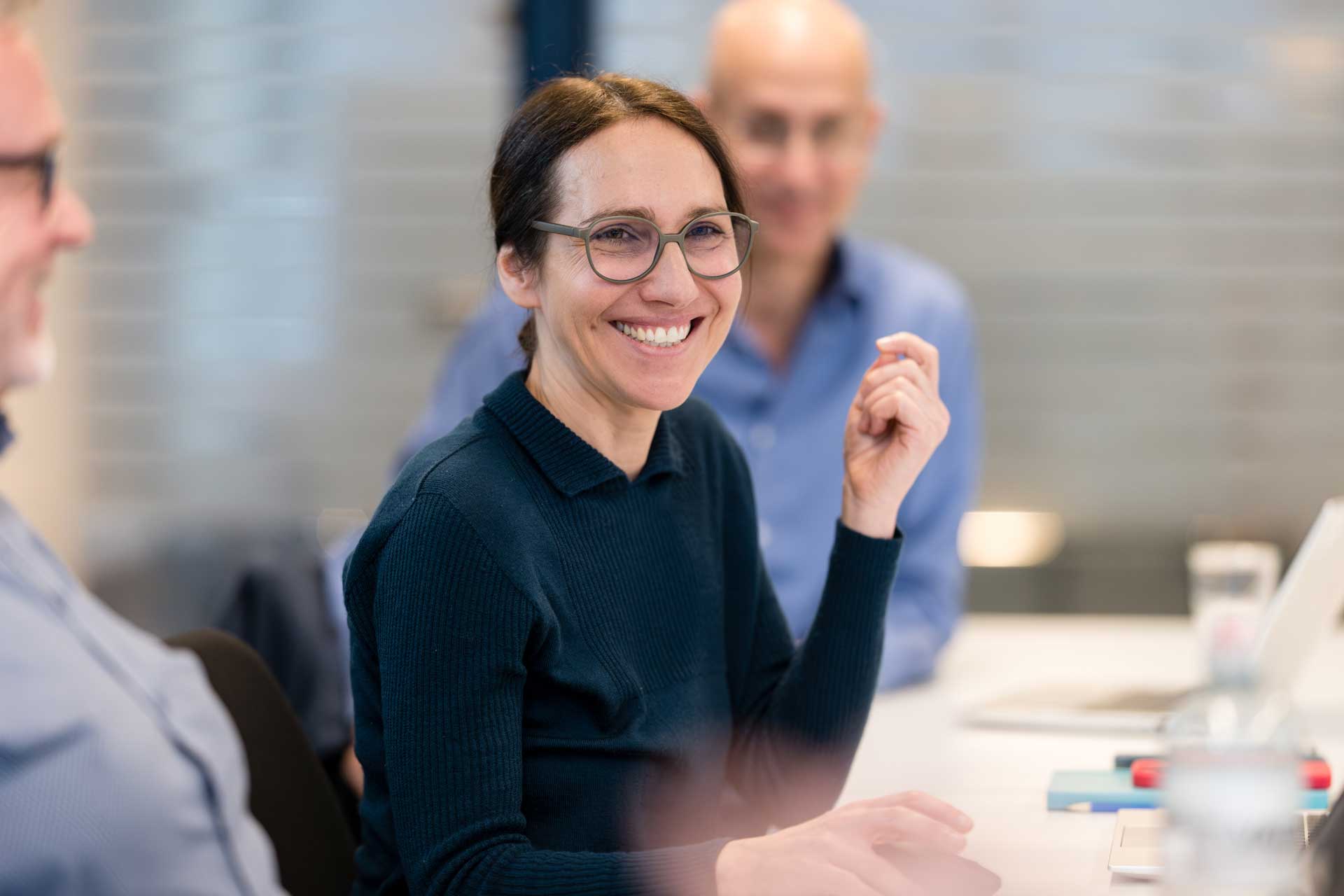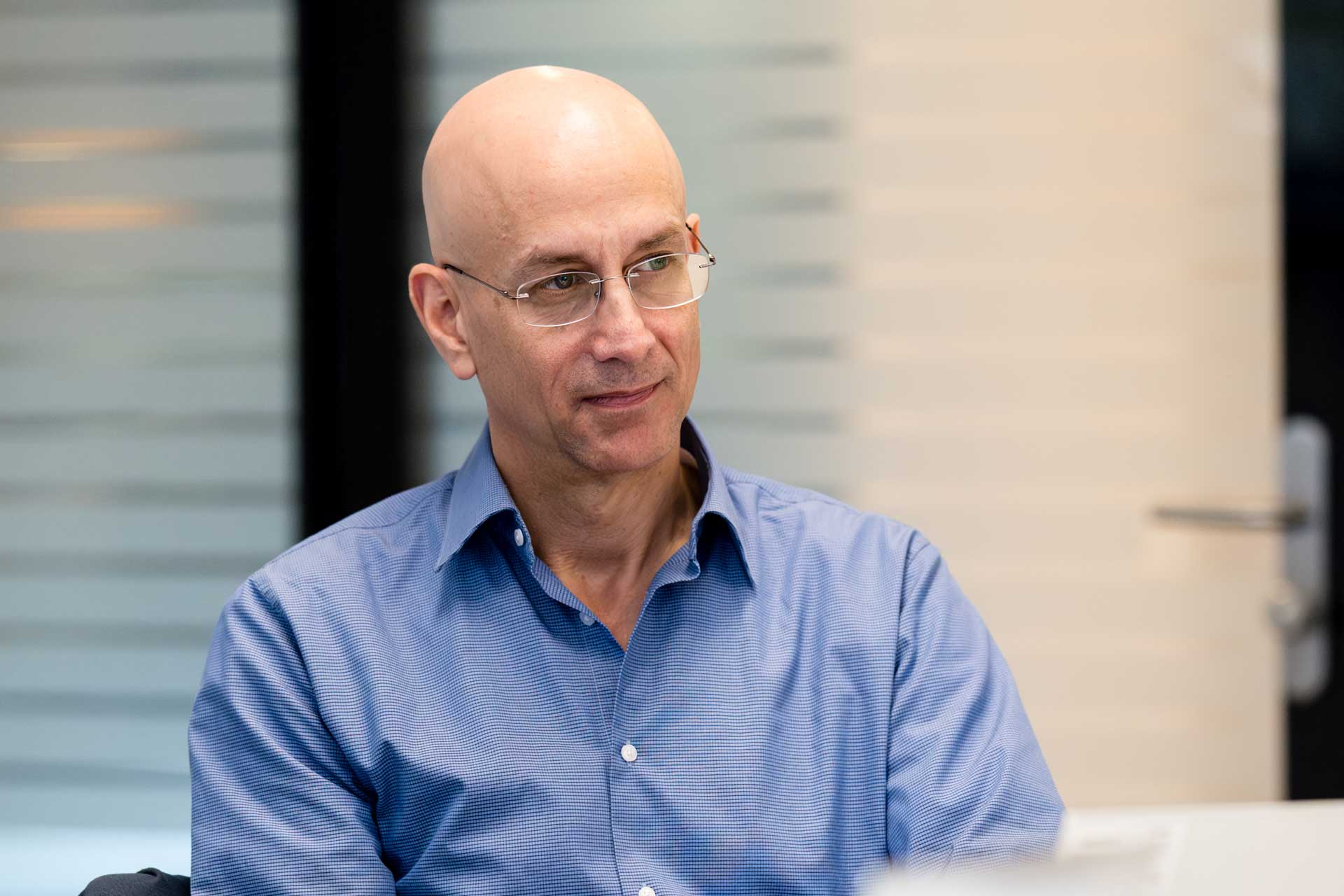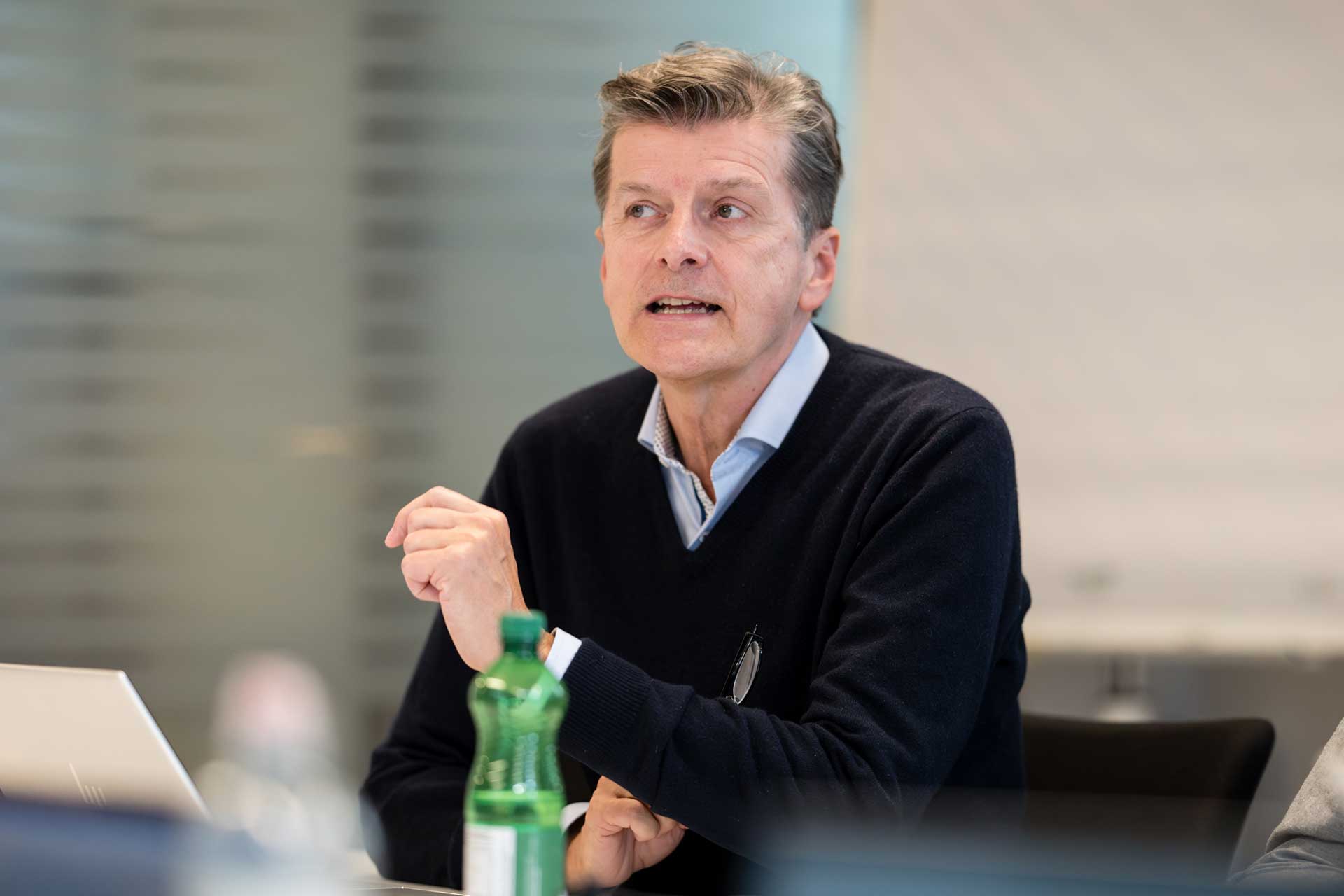Investigated
For safe, high-quality medicinal products Every question counts
How should a pharmacist store a painkiller in the heat of the summer? Is it permissible to divide or grind a tablet? Every year Swissmedic receives more than 8,000 enquiries from the public. “We take every single question very seriously,” says Ulla Grauschopf. The Head of the Quality Assessment Division shows us during our visit just how seriously that is.
A stroll through the modern corridors and rooms at Swissmedic inspires nothing less than awe. The tremendous density of knowledge and the large number of highly educated people present at the three compact sites in Bern are palpable. Most of them have a scientific background, many are university-educated and have experience in research and drug development. They are biochemists or biomedical scientists, pharmacists, microbiologists, molecular biologists, chemists, toxicologists, doctors and engineers. Their conversations revolve around medicines and their quality, safety and efficacy.
And that is also the subject of today’s meeting at Swissmedic’s headquarters on Länggasse in Bern. This is where the extended management team of Swissmedic’s Quality Assessment Division is based and where it discusses enquiries that have been sent to Swissmedic during the past week by pharmaceutical companies, healthcare professionals, politicians or members of the public. Anyone is entitled to ask questions – from pharmacists and consultancies to worried parents.
Ulla Grauschopf, a biochemist who spent several years in basic research followed by 17 years in pharmaceutical development at a major pharmaceutical company, heads this Division of scientific experts. She’s looking forward to hearing the questions that the team will have to answer today, she says. After a brief welcome she presents the first enquiry.
Enquiry 1: A pharmaceutical company wants to know whether Swissmedic appreciates re- ceiving ″Notes to Reviewer″ when the company submits an application for authorisation.
The team launches into a detailed discussion of the usefulness of Notes to Reviewer – which are a kind of summary of the content of the comprehensive application for authorisation. Conclusion: This information is not vital for the assessment but it is helpful because it shows at a glance what the submission is about. The team responds to the pharmaceutical company as follows: “We don’t actively request them, but it would be a pity if they weren’t sent.”
Swissmedic employees meticulously review authorisation applications for medicines, and they are no less conscientious in replying to the wide variety of enquiries sent to the authority. “Our teams take every question equally seriously and always engage in a differentiated discussion, no matter who has asked the question and what the topic is,” says Ulla Grauschopf. The teams at Swissmedic author over 8,000 responses every year. Incoming enquiries are triaged, and about five complex questions are passed on to the 36-strong Quality Assessment Division each week. The employees’ core business – assessing authorisation applications – qualifies them to provide extremely competent responses to these questions, the Division Head explains.
Enquiry 2 is more complicated. Another Division has written a response to an external enquiry. It would now like to know whether Quality Assessment feels that the response has been formulated correctly. The question concerns complex authorisation processes, and a pharmaceutical company wants to know why they are handled in a certain way.
Conclusion: The leadership team discusses its own processes and realises that the Swissmedic guidance document is not formulated clearly enough. The document will now be modified.
“Enquiries often kick off a dialogue within the team,” says Ulla Grauschopf, “and that leads us to review and improve our processes.” Because the more clearly Swissmedic documents its requirements in terms of the quality of medicines, the more likely it is that manufacturers will comply with them from the outset. “We engage in an intensive dialogue with the pharmaceutical companies in the context of application processing,” Ulla Grauschopf explains. This is also an important aspect in dealing with unresolved questions during the authorisation process. “Ultimately we are helping to make medicines safer all the time.” This major social responsibility is a great motivator for all the members of the team: “The work we do is tremendously valuable.”
“The work we do is tremendously valuable.”
The third enquiry comes from a member of the public. A climate control engineer wants to know why many medicines have to be stored at a maximum of 25 degrees. He writes in his e-mail that, as a result, doctors’ practices and pharmacies are cooled intensively in the summer months, which is not very climate-friendly.
The leadership team replies that medicines might be damaged if they are stored in conditions that are too hot or too cold. The team explains in their response that pharmaceutical companies do not choose storage temperatures randomly but on the basis of studies performed in compliance with international guidelines. And that Swissmedic additionally reviews the temperature range before an authorisation is granted. The team also provides information about the possible consequences. A medicine that is stored incorrectly can become less effective or even completely ineffective. Degradation products that are toxic may be formed. Temperatures that are too low or the wrong air humidity can also have a negative effect on quality.
The team frequently receives enquiries about storage conditions, which include temperature and air humidity. Even though the situation is clear, they respond to every enquiry in great detail – because it is an important subject. Senior Assessor Michaela Hör explains that if questions concern specific products, the team responds on the basis of the scientific data in their regulatory database, which are reviewed by Swissmedic.
Patients, and sometimes doctors too, often question strict storage conditions without being aware of the consequences, says Bernhard Spörri, Head of the Synthetics 1 unit: A lot of people believe that pharmaceutical companies make the temperature ranges as narrow as possible for financial reasons, so that more medicines are thrown away. “But in fact, it’s in the company’s interest for the temperature range to be as wide as possible as otherwise storage and transport are more difficult and more expensive,” he says.
The same problem arises with the shelf life of medicines. Martin Leu, Head of the Biologicals unit, mentions the belief that companies make the shelf life shorter than it could be for financial reasons. Here, too, the opposite is usually the case. “The active substances are often difficult to obtain and correspondingly expensive, and the logistics are very time-consuming,” says Senior Assessor René Gysin. The shorter the shelf life, the greater the risk for the manufacturer that a medicine will have to be destroyed before it is even sold.
Enquiry 4: A pharmacist asks whether she can still use a diphtheria and tetanus vaccine that expired two months ago.
It is vital for expired medicines to be disposed of. “We have absolutely no leeway in the matter,” says Richard Weissmahr, Head of the Synthetics 2 unit. At best a medicine will not work after its shelf life has expired. André Nick, Senior Quality Assessor, adds, “If an ingredient in the medicine degrades during storage, degradation products are also always formed, and these may even be toxic. In chemistry something new always forms when a substance degrades." But you can’t usually tell just by looking at a tablet or a syrup.
All the questions have been answered, the meeting is over. The weekly meeting to deal with enquiries makes up only a small part of their work, says Ulla Grauschopf, “but it is an important part that belongs to our public mandate. We are proud of being an approachable and transparent health agency.” She likes the weekly discussion rounds. “The variety of medicines is so enormous – so, in the same way as in our assessment work, new questions take us by surprise every day.” There’s not much routine here. The work is tremendously varied, precisely because the Quality Assessment Division looks at the entire process, from the development of the active substance to the finished medicine. “That’s what makes the job so incredibly fascinating.”
Do you have a question for us too?
Send it to
anfragen@swissmedic.ch.
